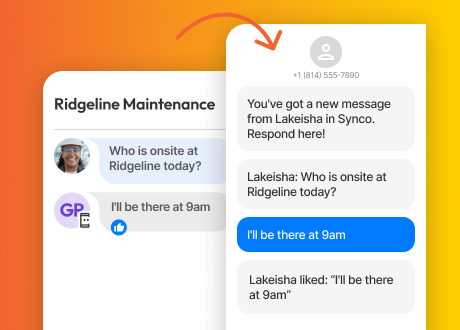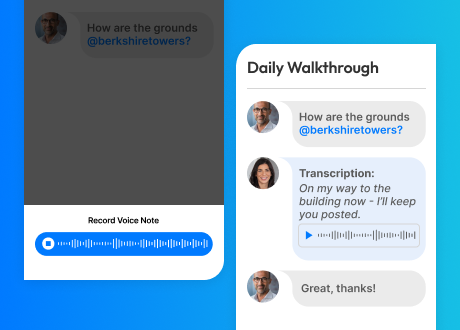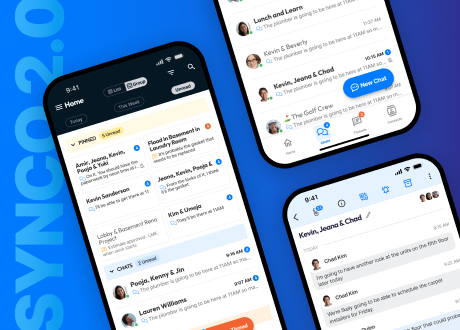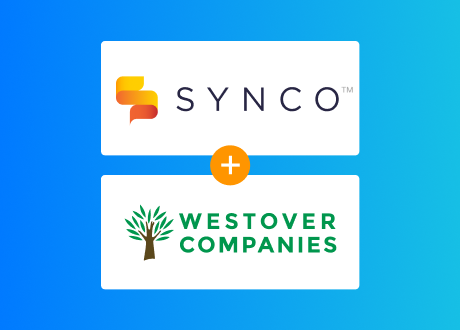Lessons Property Management Can Learn from Big Tech Companies
A version of this content was delivered as an education session at NAA Apartmentalize 2023.
Though property management has been “hybrid/distributed” forever, the “hybrid model” of working has spread considerably since the pandemic. Property management companies should look at what big, scaling tech companies are doing to facilitate hybrid work & better communication practices – and try to integrate some of those practices into their employee culture in three key areas:
- Enabling transparency at all levels
- Reinforcing company values
- Documenting processes better across a distributed, asynchronous team
Tackling Transparency: Challenges & Opportunities
It’s time to think beyond having employees on a “need to know” basis.
“Defaulting to transparency” has been shown to have benefits at large companies. Especially in property management, where you’re moving fast and operating cross-functionally, it helps to give people context into what’s happening at a property, even if right now it doesn’t directly concern them. It can pay dividends later.
Two companies in the tech space have transparency as a core value, and here’s how they practice it:
- GitLab (engineering software): “we prioritize conversations that a wider audience can benefit from” // “Transparency has costs (distraction, mis-interpretation, etc.) but also great benefits (productivity, hiring, retention, brand awareness, etc).”
- Stripe (payments platform): “We over-index on transparency because we believe access to information is imperative to creating the very best work, and we have a lot to learn from one another.”
What strategies or technologies can you use to disseminate information beyond just email?
- Company Knowledge Base – Do you have an employee knowledge base where you can share best practices, documents, and templates? Examples of Software: Notion, Guru, Microsoft Sharepoint
- Surveys – Ask simple, pulse-type questions using Typeform or SurveyMonkey, e.g. “I know what matters to (company).” “I get the information I need to do my job.” Set a baseline, measure over time, and share the results with employees! This will help you know what people want to know more about – but don’t have access to.
- Real-time messaging – Synco makes most conversations are “public”, and searchable. Instead of having a bunch of 1-1 email threads, your team can have conversations in real-time on Synco, with pre-set Groups for projects and properties.
Your Values Drive Your Culture: Challenges & Opportunities
Your company values may be on your website, or on a poster at your HQ. But how do you reinforce them across a growing team, especially if you don’t have many opportunities to be together often? Many tech companies reinforce their values by recognizing employees for the small wins, regularly.
Here’s how two companies articulate it:
- TopTal (online freelancer network): “[Our values cover] everything from how we communicate and collaborate with each other to the software and tools we use to how we encourage constant feedback loops.”
- Keap (small business CRM): “Our values are an everyday process”
How can you make employee recognition replicable, impactful, and visible to other team members?
- Value-based recognition software: These software platforms give you the ability to recognize employees throughout the company and provide monetary or other types of rewards for specific actions or behaviors that you want to reinforce. Examples of software: Bonusly, Cooleaf, Fond
- Performance Reviews: 1) do you do them regularly and 2) are there specific sections on how an employee embodies your company values?
Documenting the Important Processes: Challenges & Opportunities
Many property management employees feel frustrated when trying to find attachments or important documents given the volume of email they receive. Not having a process documented – and being able to reference that documentation later – hinders your business from running efficiently.
Big hybrid companies emphasize documentation because they know people are working at different times, are sometimes away from their computers, and don’t have access to the office to hear things through osmosis. When you’re trying to retain good employees (and their knowledge) and hire new ones at the same time, documentation and overcommunication are critical.
Here’s how two tech companies position documentation to their employees:
- Atlassian (software developer tools): “Documentation encourages knowledge sharing, which empowers your team to understand how processes work and what finished projects typically look like.”
- Qatalog (digital work hub software): “An effective documentation culture is about more than simply creating lots of documents. It means everyone is clear about how documents are created, where they’re stored, and how they’re accessed and updated. And it gives everyone ownership of those processes.”
There are ways to start small and upgrade your team documentation without trying to write 1000 FAQ documents in a week.
- Infrastructure: You have to have somewhere to store this information – preferably somewhere that’s accessible on the go for workers on-site as well. Examples of Software: Notion, Guru, Microsoft Sharepoint
- Content Audit: Do an audit on what documentation needs are most critical by asking these three questions:
- When onboarding an employee, do you have a list of company norms or FAQs that they can access about their role and team?
- Do you regularly check in across the whole company, regions, and teams to give them an update on progress on strategic goals (and record and store the recording somewhere)?
- Do you encourage high performers or team leads to document their processes and share those best practices across the organization, not just once but somewhere a new hire could reference down the line?
The work of building a culture that retains and empowers employees is never done – and there is always something new to learn from different industries. Seeing what large tech companies have done can help you get started, and provide critical infrastructure to teams in the office and in the field.




